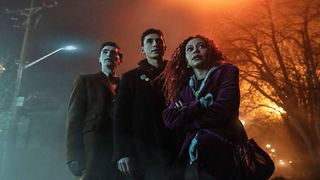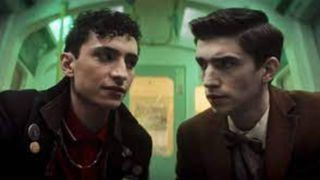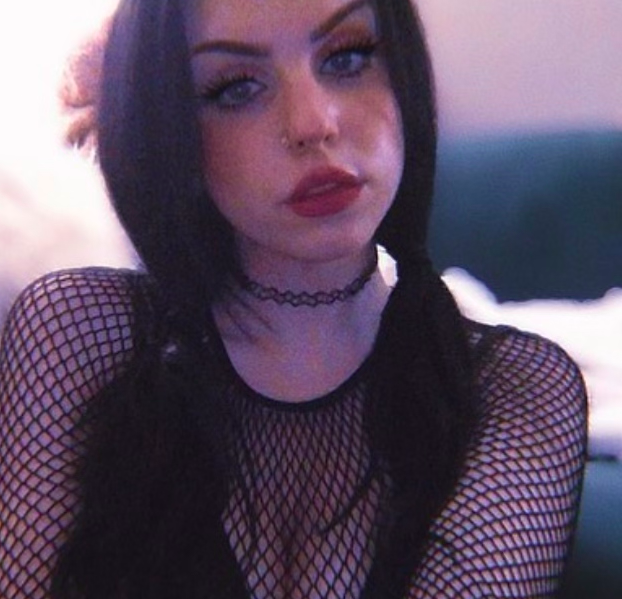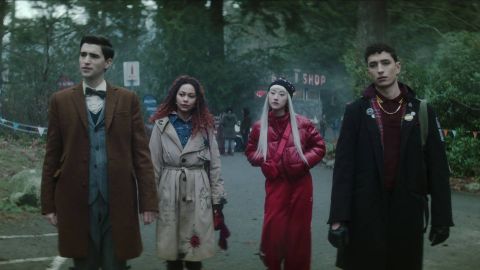12DOVE Verdict
A deeply moving exploration of loss, grief, sexuality, and love that will break your heart and mend it over and over again.
Why you can trust 12DOVE
Warning: Minor spoilers for Dead Boy Detectives!
Hollywood is at the peak of TV and film adaptations, and I'm a little burnt out. When a TV series based on Dead Boy Detectives was announced some two years ago, I was nervous. Neil Gaiman's work has a delightfully dark whimsy that has to be handled delicately, and beautifully complex characters that need to be treated with care. Netflix's The Sandman, which had Gaiman at the helm, was nearly perfect. Some of us spent our whole lives waiting to see the Endless on screen – and it was more than worth it. It thrills me to say that Steve Yockey's Dead Boy Detectives not only captures the delightfully dark spirit of its comic book counterpart, but is a deeply moving exploration of loss, grief, sexuality, and love that will break your heart and mend it over and over again.
We first meet our dead heroes as they run from an angry ghost, and right away we see the dynamic: Edwin Payne (George Rexstrew), styled like an early 1900s school boy, is the brains, and Charles Rowland (Jayden Revri), who swiftly pulls out a knife, is the brawn. The aim of the Dead Boy Detective agency is to help ghosts move on to the Afterlife, and once the boys are able to free this angry ghost of whatever is possessing him – the one and only Death (Kirby) appears, wearing her signature all-black attire and silver Ankh. Ten minutes into the series and I'm already crying as Death comforts the ghost, tells him that he's been dead for far too long, and watches as he becomes so excited at the thought of reincarnation, of moving on. Charles and Edwin quickly hide from Death, because "moving on" is the last thing the boys want to do.

To quote Sebastian from The Little Mermaid, "The human world is a mess." So why stay? When the boys died, Edwin in 1916 and Charles in 1989, no one investigated. No one cared. Rather than go back to their eternal resting places (which, for Edwin, is anything but restful), the two best friends decide to use their time on earth for good. It's here that they make two human friends, Crystal Palace (Kassius Nelson) and Niko (Yuyu Kitamura). Although, technically they make three human friends if you count Jenny (Briana Cuoco), the cynical tattooed butcher shop owner turned reluctant landlord who comes around to liking them at the very end.
Rexstrew and Revri have an unmistakable chemistry, and it's easy to, not just see, but feel the love they have for each other. Nelson's Crystal enters the show as the antidote to Edwin's more uptight and stubborn nature, but quickly becomes her own strong and special character – with her storyline almost becoming more interesting and exciting than the boys'. It's impossible not to fall in love with these characters, to shriek at the screen when something goes wrong, to wait on the edge of your seat until the next episode. But it's not just about the protagonists, one of the most compelling parts of the series is its complex and ruthless villains.
Dead Boy Detectives has three main big bads: Esther Finch (Jenn Lyon) is a wicked witch on a quest for eternal youth, the Night Nurse (Ruth Connell) is trying to bring the boys back into the Afterlife by using any evil means necessary (resulting in a flashback scene so harrowing that it brought back memories of my own traumatic experiences that I hadn't thought about in so very long), and David the Demon is the narcissistic abusive ex-boyfriend so many of us have had. That's the thing, the show (much like the comic) is not afraid to touch on the subjects that so many forms of media skip over.
Not only do we see Crystal fight against her abuser throughout the season, but the boys encounter a case that serves as a metaphor for the cycle of abuse. Another episode touches on suicide, humanizing those who choose to take their own lives by cleverly explaining the euphoria someone experiences after they've made the decision.

Mark my words, Dead Boy Detectives will be the next TV show to sweep the internet and garner an immensely dedicated fanbase, and this will be partly because of how many young people will see themselves in Edwin Payne. I said that the show is delightfully dark, but it's also delightfully queer. Rexstrew's Edwin doesn't quite have the words to verbalize his own sexuality, to admit his feelings to the person he truly loves, and we spend the season watching him develop this incredible strength, this sense of pride.
If you aren't enticed by emotional themes, come for the show's stylish procedural-like format, Goosebumps-esque opening theme full of dancing skeletons, Charles's repeated use of dated British slang, Niko's awkwardly perfect comedic timing, Lukas Gage's strangely seductive Cat King, and the Endless cameos. There's also a part where a Molotov cocktail gets thrown at a giant spider made up entirely of baby doll parts, if that's something you're into. Right away the show wants you to know, this ain't Sandman. It's a bit more upbeat, a bit sillier, but it acts as the perfect companion piece.
The season does wrap up with a neat little bow, as if it'd be perfectly fine and good if Netflix decided not to renew the series for a second season – but I need at least three, or five. Gaiman goths, we won.
Dead Boy Detectives is streaming now on Netflix. For more, check out our list of the best Netflix shows to stream right now.

Lauren Milici is a Senior Entertainment Writer for 12DOVE currently based in the Midwest. She previously reported on breaking news for The Independent's Indy100 and created TV and film listicles for Ranker. Her work has been published in Fandom, Nerdist, Paste Magazine, Vulture, PopSugar, Fangoria, and more.

